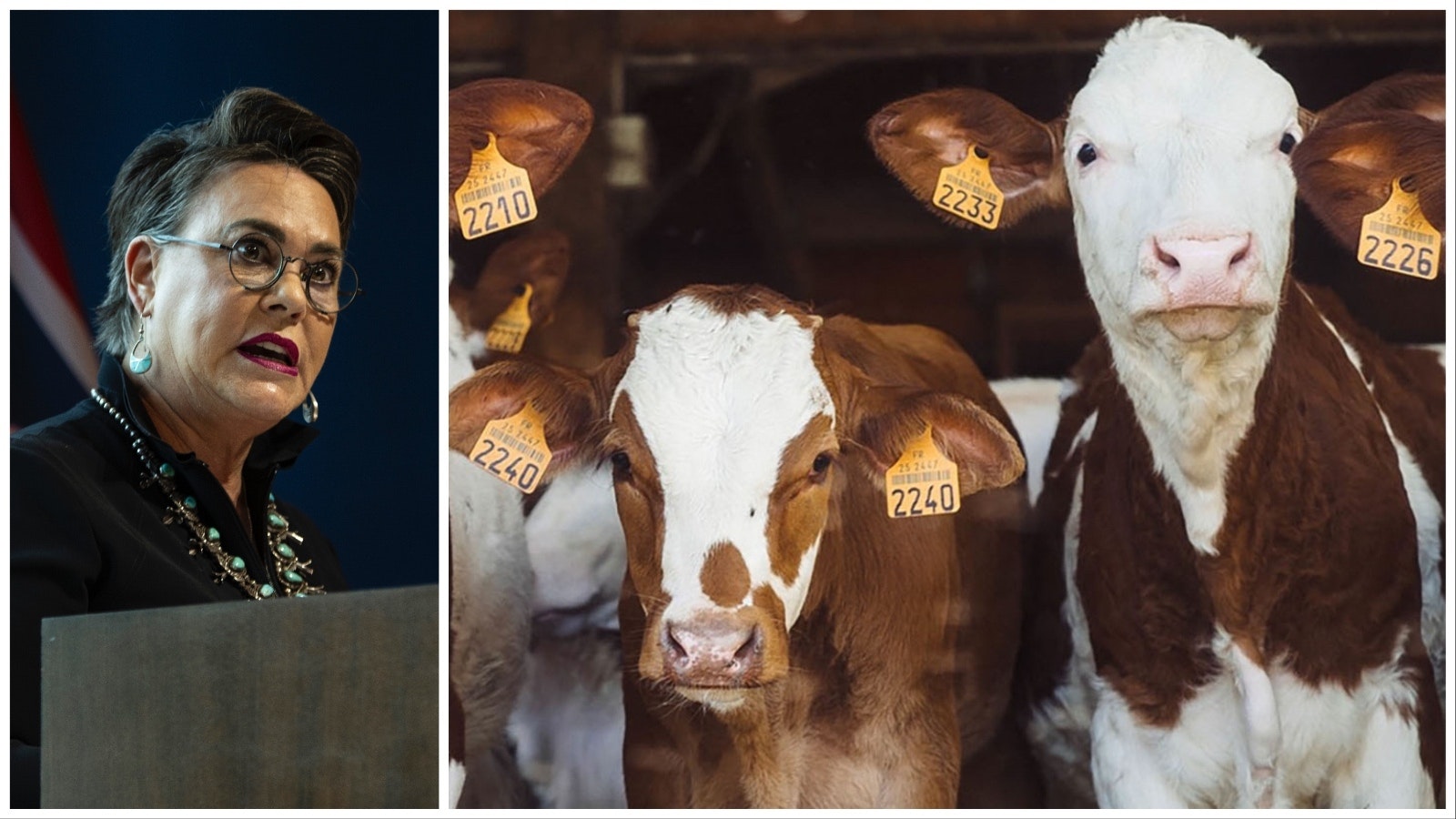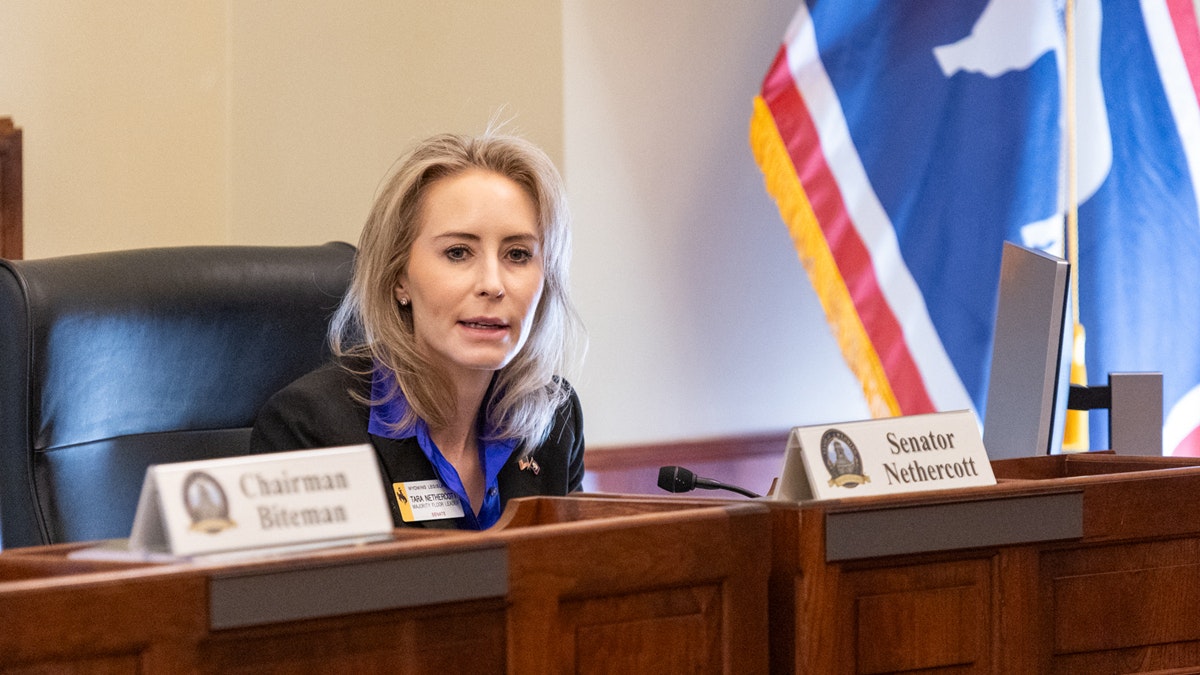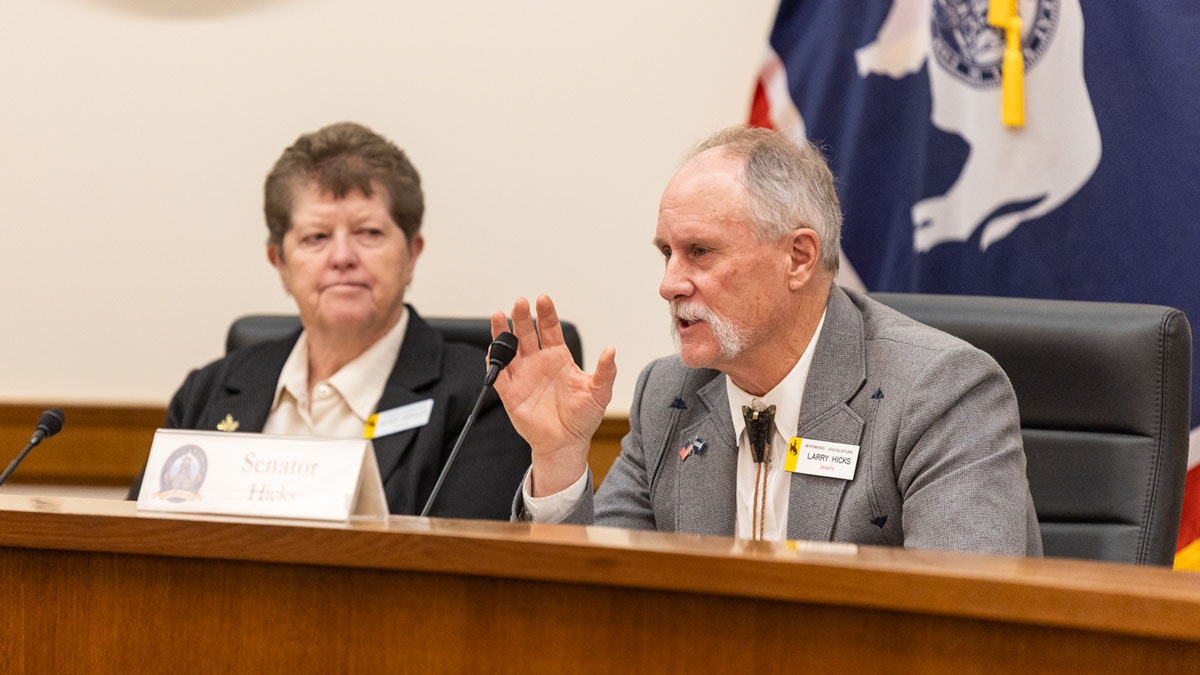A new U.S. Department of Agriculture rule that will require all sexually intact cattle and bison moving across state lines to be tagged with electronically readable tags has raised the ire of U.S. Rep. Harriet Hageman, R-Wyoming.
Hageman has long opposed the rule that was finalized Friday requiring tags to be both visually and electronically readable. It applies to intact cattle and bison 18 months or older, all dairy cattle, and show and rodeo cattle and bison of any age.
“This underfunded mandate is duplicative and places an unjust burden on Wyoming ranchers who have to cross state lines to take their cattle to market,” she posted to X (formerly Twitter) on Monday.
Previously, metal clip tags were all that were required for interstate travel. These will now be replaced by the electronic RFID tags.
Cattle and bison are exempted from official identification requirements if they are going directly to slaughter.
“I am frustrated and concerned that OIRA (Office of Information and Regulatory Affairs) would allow a final rule to move forward mandating the use of EID eartags,” Hageman said, according to Tri-State Livestock News. “Not only is such a mandate bad policy, this rule has not gone through the proper regulatory review required.”
Why Is It Needed?
According to the USDA, the rule is needed to trace animals and eradicate disease. The regulation is intended to speed up disease traceback by replacing metal ear tags with ones that can be read by an electronic scanner.
"This goal can only be realized if the animals are properly identified and the individual and the herd, flock or group identification are recorded," the USDA said in a 2023 statement.
In March, Congress passed the Consolidated Appropriations Act 2024, which includes $15 million to provide electronic identification tags that will be required for ranchers under the Animal Disease Traceability rules. Later that month, President Joe Biden signed the bill into law.
But many ranchers believe this is nowhere near enough money to pay for the tags. R-CALF USA has opposed the ear tags, saying they will lead to increased costs for cattle producers.
The National Cattlemen's Beef Association has said it supports the rule as long as it doesn’t cost farmers and ranchers more.
USDA has been providing tags to farmers for free since 2020 and said it will continue to do so as long as it can. Long-term funding would depend on congressional appropriations and competing budget lines, the agency has said.
For Hageman this is not enough.
“I will continue to fight for our small, independent ranchers and hope they will hold their industry representatives accountable for supporting such a destructive rule,” she said.
The rule will be effective 180 days after it is published in the Federal Register, which will happen in the coming weeks.
Animal and Plant Inspection Service “failed to undertake a proper federalism review and did not provide an accurate economic analysis,” Hageman said. “This mandate is duplicative and places an unjust burden on ranchers who have to cross state lines to take their cattle to market.”
Leo Wolfson can be reached at leo@cowboystatedaily.com.





